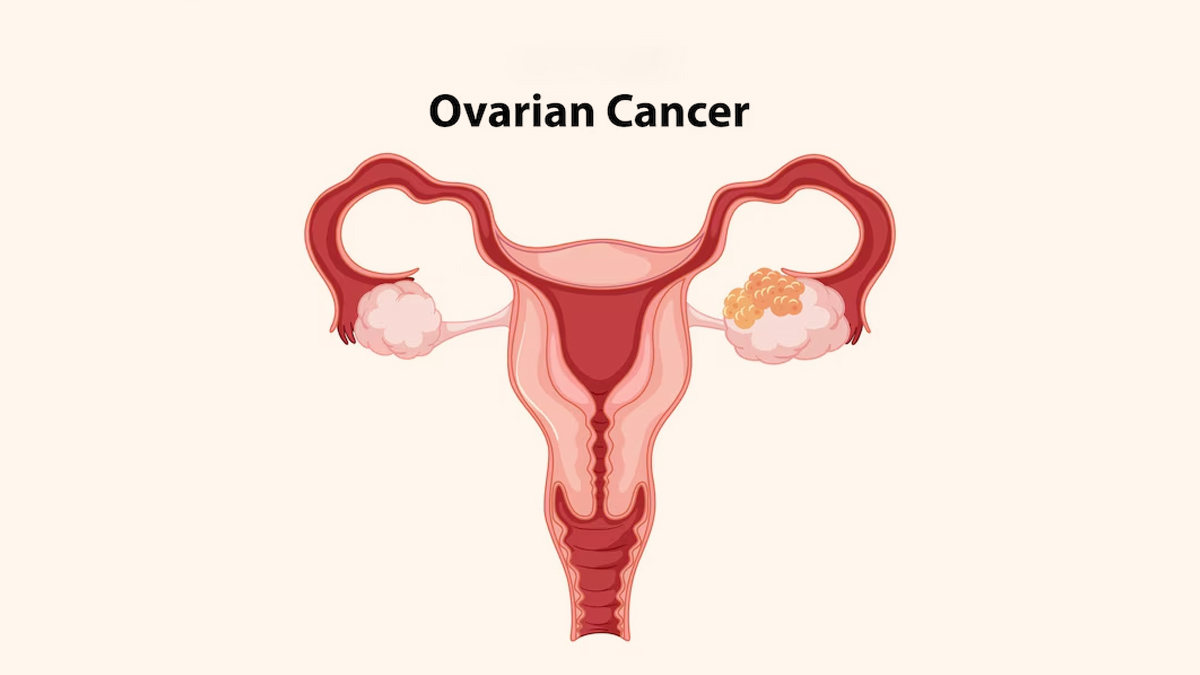
Have you ever wondered what makes ovarian cancer such a significant health concern? As September marks Ovarian Cancer Awareness Month, it's crucial to understand the key aspects of this disease. While it may not always be in the spotlight, ovarian cancer remains a critical issue for women's health, and increased awareness can lead to earlier diagnosis and better outcomes:

“Ovarian cancer is a formidable disease characterised by the abnormal growth of cells in the ovaries, often presenting with subtle or nonspecific symptoms in its early stages, leading to challenges in early detection. As one of the deadliest gynecological malignancies, ovarian cancer is typically diagnosed at an advanced stage, complicating treatment and reducing overall survival rates”, as per the National Institutes of Health (NIH) study.
It often begins with abnormal cell growth in these tissues. Although it can affect women of any age, it is most commonly diagnosed in those over 50-55, as per various Health reports.
There are several types of ovarian cancer, including epithelial tumors (the most common type), germ cell tumors, and stromal tumors. Each type varies in its origin and behaviour, affecting treatment approaches.
“Many women fully recover from ovarian cancer after surgery and/or chemotherapy. Ovarian cancers caused by germ cell or stromal tumors have high survival rates, but epithelial carcinoma has lower survival rates”, states the University of Kansas Cancer Center

Women may experience abdominal bloating, pelvic area pain, lower back pain, sudden weight loss, difficulty eating, menstrual changes, unexpected vaginal bleeding, nausea, and frequent urination, but these symptoms can easily be attributed to less serious conditions. Because of this, ovarian cancer is frequently diagnosed at a more advanced stage, which can complicate treatment and impact survival rates.
Several risk factors have been identified for ovarian cancer:
i) Genetics plays a significant role; mutations in the BRCA1 and BRCA2 genes are known to increase the risk of ovarian cancer, as per the National Institutes of Health (NIH) study.
ii) Most women are over 55 when diagnosed.
iii) Smoking is a risk factor for ovarian cancer, with women who have smoked having a 3 to 6 per cent higher chance of developing it.
iv) Having a blood relative or family member with ovarian cancer increases your risk of the disease, as per Mayo Clinic.
v) Hormone replacement therapy (HRT) over five years results in one additional ovarian cancer diagnosis for every 1,000 users.
vi) Starting menstruation early or experiencing menopause later in life, or both can raise the risk of ovarian cancer.
vii) Having excess weight can also increase the risk of ovarian cancer.
Don't miss: Heart Attack vs Cardiac Arrest: Health Expert Breaks Down Key Differences And Prognosis

Early detection is challenging due to the non-specific symptoms and lack of effective screening tests for the general population. However, if ovarian cancer is suspected, doctors may use a combination of pelvic exams, ultrasound imaging, and blood tests (such as the CA-125 test) to help in diagnosis, according to the National Institutes of Health (NIH) study. A definitive diagnosis usually requires a biopsy or surgical procedure.
Treatment for ovarian cancer depends on the stage and type of the disease. Options typically include surgery to remove as much of the tumor as possible, chemotherapy to target and kill cancer cells, and, in some cases, targeted therapies or hormone treatments. Advances in treatment continue to improve survival rates and quality of life for many patients, as per various Health reports.
Don't miss: Selena Gomez Reveals She Can't Conceive Due To ‘Medical Issues’; Is it Lupus? Expert Weighs In
Ovarian cancer awareness is important because it can help women recognise symptoms and get early treatment, which is crucial for this deadly disease. Ovarian Cancer Awareness Month is vital for raising awareness and supporting research. Increased public knowledge about the disease can lead to earlier detection and better treatment outcomes. The government should also organise awareness and health campaigns and use social media to create awareness about Ovarian cancer.
For more such stories, stay tuned to HerZindagi.
Image credit: Freepik
Also watch this video
Herzindagi video
Our aim is to provide accurate, safe and expert verified information through our articles and social media handles. The remedies, advice and tips mentioned here are for general information only. Please consult your expert before trying any kind of health, beauty, life hacks or astrology related tips. For any feedback or complaint, contact us at [email protected].